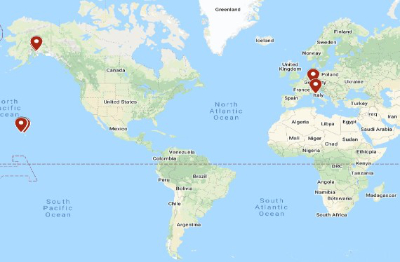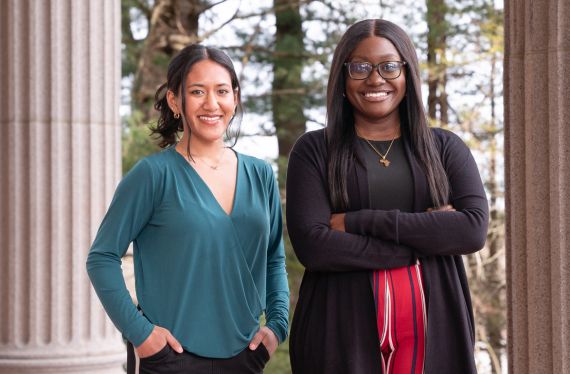Today, Regis’ reach goes well beyond Weston; and Massachusetts; and the Atlantic Ocean; and the Canadian border.
 Among the university’s more than 3,400 students, some of the farthest from campus are based in Hawaii, Alaska, and Europe; and while they may not set foot in Weston they are still very much part of the Pride.
Among the university’s more than 3,400 students, some of the farthest from campus are based in Hawaii, Alaska, and Europe; and while they may not set foot in Weston they are still very much part of the Pride.
“I feel the school does a good job at making me feel connected because there is always someone reaching out to me making sure that I am doing well with the program,” said Jessica Lariego ’23, a nursing student based in Waipahu, Hawaii.
One aspect of the online program that was most attractive to the students is they don’t need to come to campus. If it wasn’t for that flexibility, Micque Mortela, a military-connected learner whose husband is based in Italy, says continuing her education really wouldn’t have been an option.
“One of the positives for me has really been the professors,” said Mortela ’23, who is in the Doctorate of Nursing Practice program. “I haven’t found a single professor who hasn’t been flexible with the time difference and many have gone out of their way to meet with me at times that work for me.”
And that flexibility allows students to continue to meet the other demands in their lives. Elizabeth Hesse ‘24, also in the DNP program, launched the COVID-19 response operations for Anchorage, Alaska, the state’s largest city. Fellow Alaskan Whitney Summers works in the maternal fetal medicine department at Alaska Native Medical Center, providing high risk pregnancy care to all Alaska Native/American Indian and military families throughout the state.
“Having a family, working full time, serving in the U.S. Public Health Service, there were a lot of responsibilities I had to factor in before pursing my degree, but all my research made it seem like (Regis was) the perfect fit for me,” said Summers ’23.
Most of the students say they stay connected with classmates through social media groups, text messages, and course discussions. And while they may not have the chance to meet classmates in person, they certainly build relationships as the cohort progresses.
“I have been able to maintain some of level of connection, mostly through messaging and emails with classmates,” said Caitlyn Parnell ’23, who lives in Germany where her husband is based. “We’ll find ways to study together.”
The distance, or more specifically the time differences, can pose some initial challenges. But despite the various obstacles adult learners, especially those far away, have to juggle as they pursue their education, these students agree it is worth it.
“You can make a bigger difference in the communities you serve by going back to school,” Hesse said.


